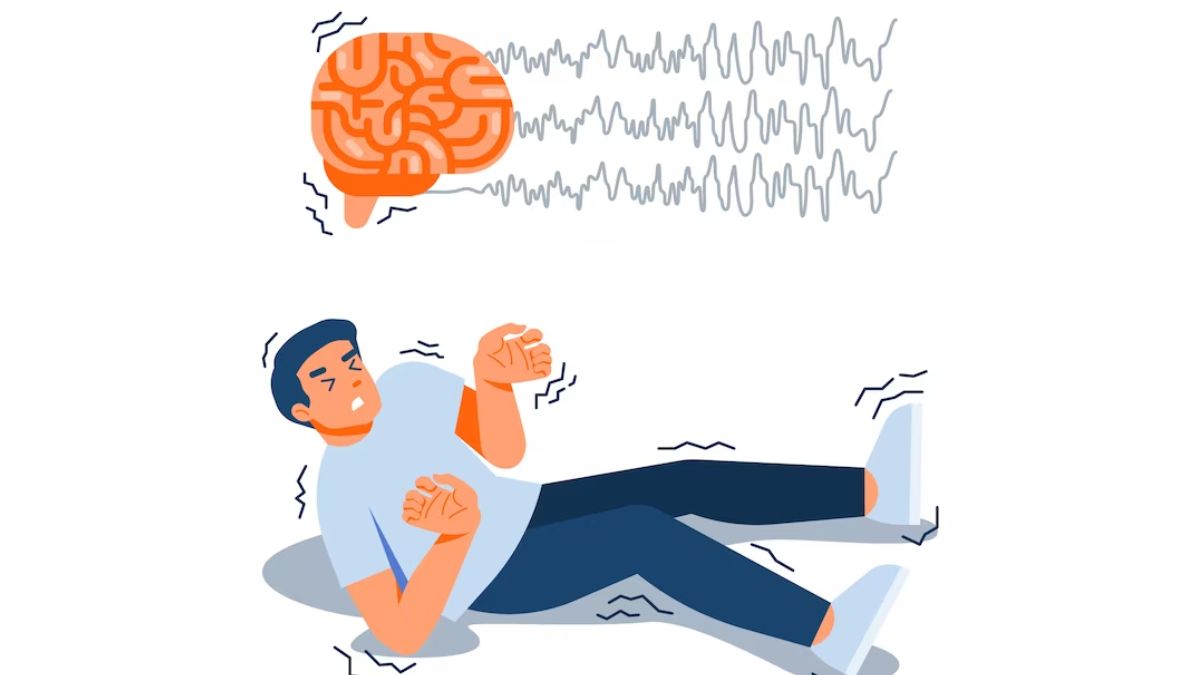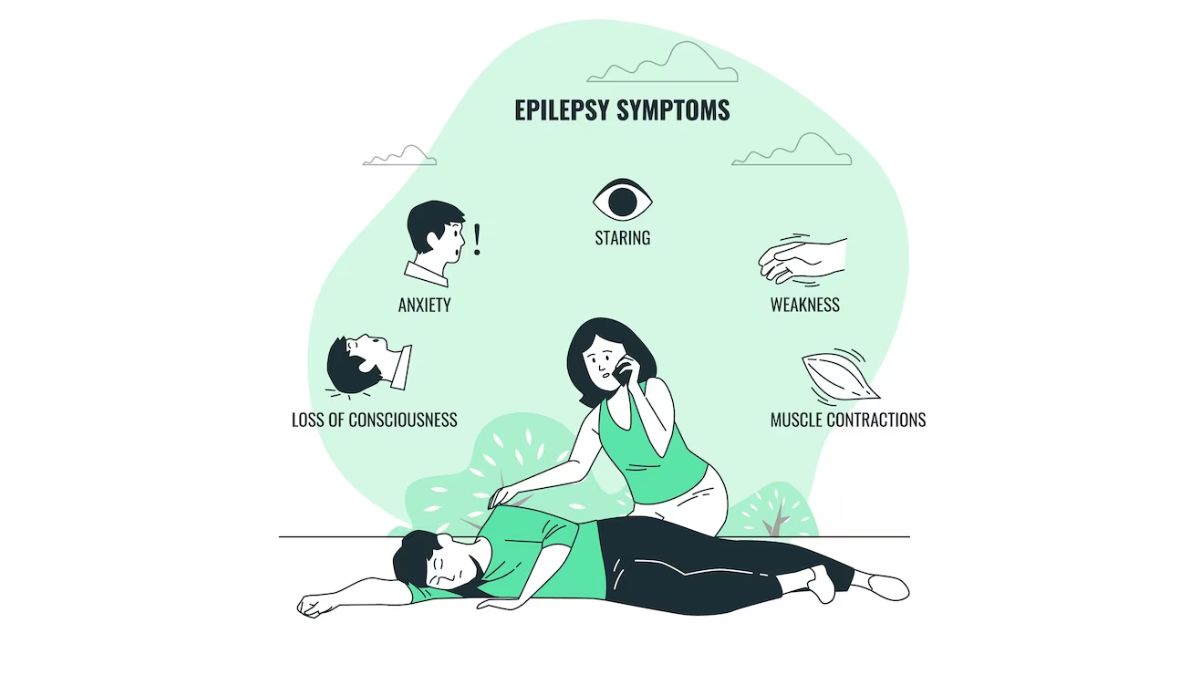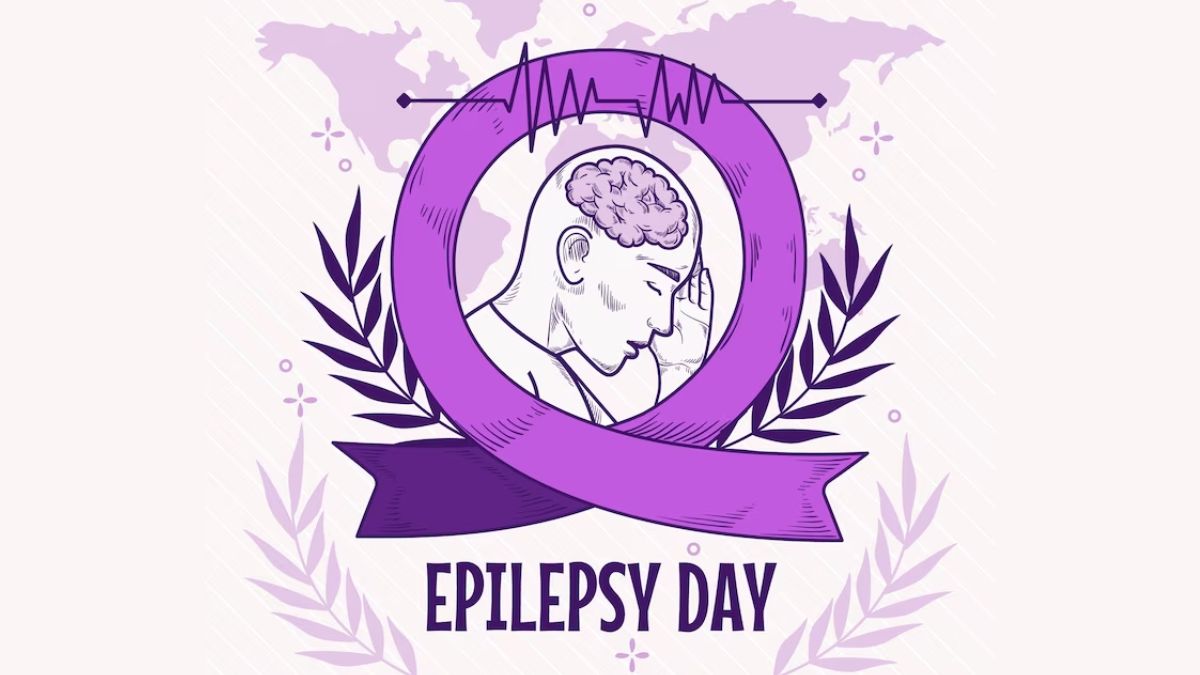- By Priyanka Munshi
- Fri, 17 Nov 2023 10:15 AM (IST)
- Source:JND
National Epilepsy Day 2023: Today, November 17, in India, people are celebrating this day, and the aim of National Epilepsy Day is to create more awareness about the impacts of epilepsy on people and their families.
Also, any cases of sudden and unexpected death, particularly in epilepsy, are referred to as SUDEP. It is an unusual incident, but it emphasizes the potential severity of epilepsy and the importance of cautious treatment. One of the major causes of SUDEP is unknown; however, it has been discovered that this issue is linked to elements such as respiratory and cardiac failure during or after a seizure.

SUDEP is an unusual incident, but it emphasizes the potential severity of epilepsy and the importance of cautious treatment. (Image Credit: Freepik)
Dr. Atma Ram Bansal, who is an Associate Director in the Epilepsy Programme, Institute of Neurosciences at Medanta in Gurugram, exclusively told Jagran English about Sudden Unexpected Death in Epilepsy (SUDEP). What are the causes and risk factors for it?
Dr. Atma Ram said, "Epilepsy, a neurological disorder affecting millions of people globally, holds a particularly significant presence in India, where more than 12 million individuals grapple with its challenges. However, there's a lesser-known aspect of epilepsy known as Sudden Unexpected Death in Epilepsy (SUDEP). SUDEP is a term used to describe the unexplained death of an individual with epilepsy who is otherwise healthy. It typically occurs during or immediately after a seizure and is not related to drowning, prolonged seizures, or trauma. The prevalence of SUDEP highlights the urgent need for awareness and understanding of this condition, given its potential to affect people of all ages. Although SUDEP can impact individuals across the age spectrum, it is more commonly associated with younger adults and those grappling with uncontrolled seizures."
Also Read: Add 5 Foods To Your Diet To Clean Your Liver Naturally
What Are The Causes Of SUDEP?
While the exact causes of SUDEP are unknown, they can be attributed to a variety of factors, primarily involving breathing and heart rhythm. Additionally, some cases involve both breathing difficulties and abnormal heart rhythms, making the precise causes complex and intertwined.
Breathing: Seizures can induce interruptions in normal breathing patterns, medically known as apnea. When these breathing pauses become excessively prolonged, they can significantly lower the oxygen levels in the bloodstream to a life-threatening extent. Furthermore, during convulsive seizures, the person's airway may become obstructed, increasing the risk of suffocation.
Heart Rhythm: Seizures have the potential to trigger irregularities in the heart's rhythm, which can ultimately lead to a cardiac arrest. This disruption in the heart's electrical activity can have severe consequences for individuals with epilepsy, especially when they experience sudden and uncontrollable seizures.
Risk Factors For SUDEP
Uncontrolled Seizures: The most significant risk factor for SUDEP is uncontrolled or poorly managed epilepsy. Individuals with frequent and severe seizures are at higher risk.
Young Age: SUDEP is more commonly associated with younger adults, particularly those between the ages of 20 and 40.
Medication Nonadherence: Skipping or inconsistent use of prescribed antiepileptic medications can significantly increase the risk of SUDEP.
Generalized Tonic-Clonic Seizures: Experiencing generalized tonic-clonic seizures (also known as grand mal seizures) is a known risk factor for SUDEP.
Long Duration Of Epilepsy: Individuals who have had epilepsy for a long time are at higher risk, as are those with drug-resistant epilepsy.
Alcohol and Drug Use: Substance abuse, including alcohol and recreational drugs, can increase the risk of SUDEP.
Preventing SUDEP And Reducing Risk
Taking proactive steps to reduce the risk of sudden, unexpected death in epilepsy (SUDEP) is of paramount importance for individuals with epilepsy. Here are some vital measures to consider:
Consult Your Doctor. If you have epilepsy, make sure to have a discussion with your healthcare provider about the risk of SUDEP. Understanding your individual risk factors is the first step in reducing the likelihood of SUDEP. Further, adhering to your medication regimen as prescribed by your healthcare provider is fundamental to managing and controlling seizures.

SUDEP has been discovered that this issue is linked to elements such as respiratory and cardiac failure during or after a seizure. (Image Credit: Freepik)
Identify Seizure Triggers: If you are aware of specific triggers that can lead to seizures, make a concerted effort to avoid them. Understanding and minimizing these triggers can contribute to better seizure control.
Avoid Alcohol Consumption: Avoid alcohol intake, as excessive drinking can potentially exacerbate seizures and increase the risk of SUDEP.
Self-Management Programs: Participate in epilepsy self-management programs, which can empower you with strategies to better control your seizures and overall well-being.
Also Read: Every Woman Must Follow These Skincare Tips Before 30 | Know From Dermatologist
Prioritize Sleep: Ensure that you get adequate and regular sleep, as sleep deprivation can be a seizure trigger.
Seizure First Aid Training: It is advisable to educate adults in your household about seizure first aid protocols. Knowledge of how to respond to seizures can make a significant difference in ensuring safety during an episode.
At last, Dr. Atma Ram said, "SUDEP is a rare but devastating occurrence, and the exact causes are still not fully understood. While the risk of SUDEP exists for individuals with epilepsy, there are measures that can be taken to reduce this risk. For those living with epilepsy, working closely with healthcare providers and remaining vigilant about seizure control is essential to improving the overall safety and well-being of individuals with this condition."

